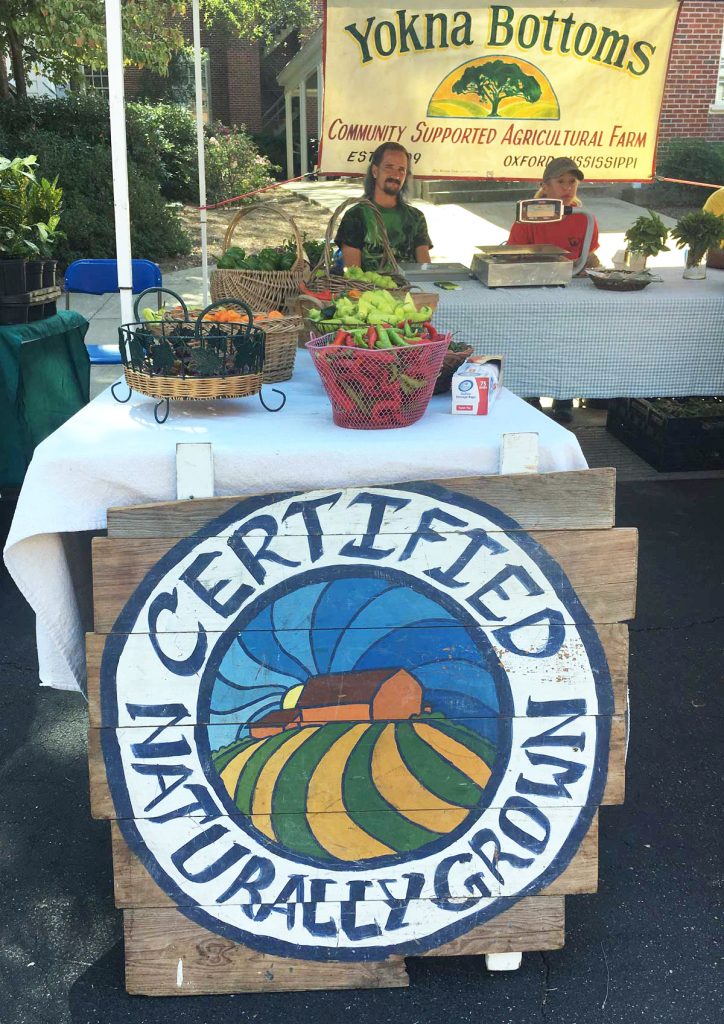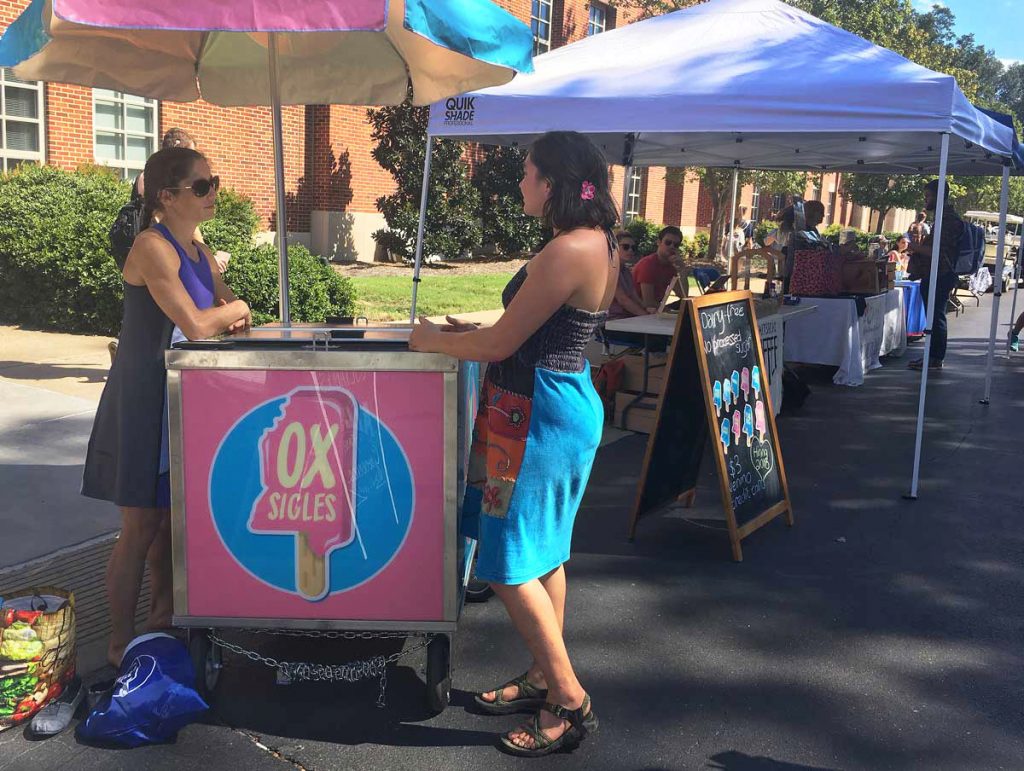The Office of Sustainability will host the annual Food Day Festival and Farmer’s Market from 10 a.m. to 1 p.m. Thursday on Business Row. The event encourages local food vendors as well as organizations relating to the food system in Oxford to meet with students and community members.
At the celebration, students and faculty have opportunities to win prizes, buy fresh produce and learn how to support a local, sustainable food system.

Yokna Bottoms Farm sells their produce at the Food Day Festival and Farmer’s Market in the Galtney-Lott Plaza last year. File photo by Holly Hicks
Kendall Lane McDonald, the project manager at the Office of Sustainability, said the department holds the festival every year because it offers resources to support the local food community.
“We also think it is a fun opportunity for students to interact directly with producers, which is valuable way to learn about how our food is made,” McDonald said.
Local grocery store Chicory Market will sell its produce and offer other prepared foods on Thursday, as well. Co-owner John Martin said the mission of the market is to support a local food system.
“We are going to be promoting awareness of how easy and important it is to eat local,” Martin said.
Karen Mardis Lafferty, co-owner of Mardis Honey Farm based in Taylor, will be selling her farm’s honey at the festival. She said her favorite thing about the event is talking with the students.
“They always have lots of great questions and comments,” she said.
The Oxford Community Farmer’s Market will organize cooking demonstrations for meals that students can make in their dormitory’s kitchen. The group will also be handing out copies of the Hungry Healthy Student Cookbook, which offers the choice of more than 200 quick, cheap and easy recipes.
“We look forward to meeting with students and telling them about the Farmer’s Market and how they can shop here for fresh local produce,” said Betsy Chapman, the market’s director.
The festival will feature other local food producers, such as 7d Bakery, Yokna Bottoms Farm and Harris Family Farm and other campus and community groups like the UM Food Bank and the UM Garden Club.
McDonald said students often gain experience interacting with local producers that they would not expect.
“They learn more about where their food comes from, and how their decisions matter, which is really empowering,” she said.

The Food Day Festival and Farmer’s Market is held at Galtney-Lott Plaza. Students, faculty and staff interacted with vendors and farmers from the North Mississippi area, as well as on-campus food and wellness groups. Information about agricultural and food insecurity issues, along with food samples were offered too. File photo by Holly Hicks






